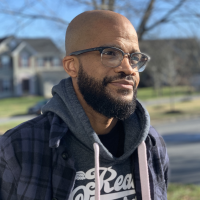Home » Jazz Musicians » Art Farmer
Art Farmer

Born on Aug. 21, 1928, in Iowa, Farmer was raised in Phoenix, Arizona along with his twin brother Addison. They moved to Los Angeles in 1945 and during the late '40s,
Farmer worked with the West Coast based bands of Jay McShann, Johnny Otis, Roy Porter and Benny Carter. He also worked with Wardell Gray and in 1952-'53 he went to Europe on the same Lionel Hampton tour as Clifford Brown, Gigi Gryce and Quincy Jones. Upon his return he decided to settle in New York City and shortly thereafter, he worked with Gryce (1954-'56), Horace Silver (1956-'58) and Gerry Mulligan (1958-'59).
Then, in 1959, he became a co-leader of the Jazztet with Benny Golson, a group that remained together from 1959-'62 and was revived in the early '80s. The Jazztet possibly enjoyed less success than it deserved.
The unique combination of Farmer's improvisational talent and leadership combined with Benny Golson's gift for composition and arrangement produced a number of world-class recordings. Apart from Golson, the Jazztet included a young McCoy Tyner and trombonist Curtis Fuller.
Following the first Jazztet, Farmer worked in a quartet format with Jim Hall, which lasted until 1964. In musical terms Farmer's trademarks have always been; carefully built melodic statements, beautifully proportioned solos and a rich and mellow sound.
Since the early 60-s Farmer has played the flugelhorn as his primary instrument which has only enhanced the mellowness of his tone. He travelled to Europe in the mid '60s for solo tours and worked with Jimmy Heath at home, before taking a job with the Austrian Radio Orchestra in 1968.
Since then he has toured around the world, often returning home for club dates and recordings. In the 80s he recorded 3 fine albums for Contemporary, Clifford Jordan plays sax on all three. In recent years he has taken up the flumpet, a hybrid blending qualities of the trumpet and flugelhorn.
Tags
Ron Carter & Art Farmer: Live at Sweet Basil

by Scott Gudell
If one wanted to capture a 'who's who' snapshot of the jazz icons of the mid-'70s, into the '80s and beyond, one of the best ways to start was to see if they had added their name to the list of artists who recorded and/or released a 'Live at Sweet Basil' collection. The New York City club debuted as a restaurant in 1974 and, within a few years, artists including Art Blakey, Gil Evans, Cecil Taylor, McCoy Tyner, Mal Waldron ...
Continue ReadingArt Farmer: Portrait of Art Farmer

by Richard J Salvucci
When a recording that is over six decades old sets a listener to thinking many different things, it is clearly something special. Art Farmer was something special. With a bump or two along the way, virtually everyone--except perhaps Art--knew it too. He and his twin brother, bassist Addison Farmer, began their careers in jny:Los Angeles in the '40s, where the Central Avenue bop scene was an especially vibrant and creative one. As if total immersion there was not enough, Art ...
Continue ReadingArt Farmer: Work of Art

by Jon Block
My favorite (jazz) album is The Art Farmer Septet (1956 Prestige PRLP 7031 of 1953-54 sessions previously released on 10" disks). It features the arrangements and compositions of Art Farmer, Gigi Gryce and Quincy Jones. It still makes me move and groove, from the first clave click on the steaming hot Afro-Cuban “Mau Mau" all the way through to Gryce's equally toe-tapping “Tiajuana," the playing is absolutely stellar. In addition to Art, Quincy and Gigi, the album offers a rich ...
Continue ReadingDial "S" for Sonny

by C. Michael Bailey
Pianist Sonny Clark was culturally marginalized in much the same way as his contemporary Elmo Hope—both heroin-addicted jazz musicians in the 1950s: at the time, and romantically, a cliche. Both pianists have been sorely lumped into the “Bud Powell school of bop piano" which superficially may seem accurate until one considers the evolutionary continuum of jazz piano that places both Clark and Hope conceptually and stylistically beyond Powell. Clark was born in Georgia and raised outside of jny: ...
Continue ReadingThe Ten Most Essential Art Farmer Albums

by Peter J. Hoetjes
Bassist Keter Betts, who played with Art Farmer briefly during the 1970s, described him best: “He was a gentleman's trumpet player, not a rebel trumpet player." At 25 years of age, Farmer was given the opportunity to travel Europe with Lionel Hampton's jazz band. He had spent the past few years wandering Los Angeles as a struggling musician with Dizzy Gillespie and Charlie Parker, and the chance for adventure was a welcome one. Upon his return to the ...
Continue ReadingRemembering Art Farmer

by Lazaro Vega
This interview was first published at All About Jazz in November 1999 and is part of our ongoing effort to archive pre-database material. This interview was originally broadcast at the time on Blue Lake Public Radio; portions of this interview appeared in an advance article published by the Grand Rapids Press. Lazaro Vega: How long is this tour in the U.S.? Art Farmer: My tour is going until the 31st of October, and then ...
Continue ReadingSonny Clark: Dial "S" For Sonny

by Greg Simmons
Original copies of Blue Note 1570--Dial “S" For Sonny--are among the rarer Blue Note records, often changing hands for thousands of dollars for even a mediocre copy. That's an awful lot of scratch for a fifty-six year old piece of pressed vinyl and a cardboard sleeve. Fortunately, there are better ways to hear pianist Sonny Clark's debut recording for the fabled label. The Music Matters series of two-disk, 45 rpm vinyl records is winding down after close to one hundred ...
Continue ReadingBackgrounder: Art Farmer and Hal McKusick, 1956-58

Source:
JazzWax by Marc Myers
Two of the prettiest and most sophisticated players in the 1950s were trumpeter Art Farmer and alto saxophonist Hal McKusick. They recorded often throughout the decade in big bands and ensembles but they only recorded 19 tracks in the quintet format—two albums in all. In the years before Hal died, in 2012, we spoke often by phone and saw each other in Sag Harbor, N.Y., where he lived. Hal intuitively understood the importance of what I was doing with JazzWax—documenting ...
read more
Perfection: Art Farmer's Work of Art

Source:
JazzWax by Marc Myers
Trumpeter Art Farmer's first album as a leader was The Art Farmer Septet, recorded for Prestige on July 2, 1953—71 years ago. The lineup was Art Farmer (tp), Jimmy Cleveland (tb), Oscar Estelle (as,bar), Clifford Solomon (ts), Quincy Jones (p,arr), Monk Montgomery (el-b) and Sonny Johnson (d). The entire album is quite good, but the song that stands out for me is Quincy Jones's Work of Art, written and arranged by Jones specifically for this recording session. The song opens ...
read more
Videos: Art Farmer in the '60s

Source:
JazzWax by Marc Myers
If we're evaluating jazz musicians on tone alone, Art Farmer was perhaps the prettiest trumpeter and flugelhornist to emerge in the 1950s. Distinguished by a warm, orchestral sound on his horn, Farmer was equally lyrical and spry as a composer and sideman. Virtually everything he played was elegantly seductive and touched your heart. If all he recorded was Work of Art in 1953, Wisteria and Soft Shoe in '54 and Farmer's Market in '56, he'd be remarkable. Here are five ...
read more
Art Farmer on Prestige: 1953-'55

Source:
JazzWax by Marc Myers
Much attention by jazz fans has been paid to the Blue Note label, and deservedly so. But the first half of the 1950s really belongs to Bob Weinstock and Prestige. While Prestige album 10-inch covers weren't as beautifully designed as those by Paul Bacon at Blue Note, the music released on Prestige between 1951 and 1955 was far more significant. The early 1950s was the dawn of the long-playing 33 1/3 record. The format was invented in 1948 by Columbia ...
read more
Art Farmer + John Coltrane

Source:
JazzWax by Marc Myers
Riffs—short, repeated musical phrases—have always been potent because they have a way of crawling into your head and improving your ability to recall a song. They also are particularly effective at getting you to buy the record on which a catchy riff appears. The funny thing about great riffs is that you don't even know you're being subsumed by them. They enter your unconscious through your ear and just live there unnoticed. Musicians are not immune to the power of ...
read more
Muted Art

Source:
Rifftides by Doug Ramsey
During the years in which Art Farmer (1928-1999) played trumpet as his main horn, his muted work was a pleasure to hear. After he switched to flugelhorn in the early 1960s, his playing took on greater lyricism and depth, but because there were no flugelhorn mutes, a satisfying aspect of his sound went by the wayside. Then, in the late '70s he found a technician who was able to convert a trombone mute so that the flugel could accommodate it. ...
read more
Art Farmer and Jim Hall

Source:
JazzWax by Marc Myers
After Jim Hall's dynamic and experimental work as a member of the Jimmy Giuffre 3 in the mid- and late '50s, the guitarist became an in-demand partner of small-group leaders. This period in the early '60s began with Sonny Rollins' The Bridge and What's New (January and April 1962, respectively), continuing with Bill Evans on Undercurrent and Interplay (April and July 1962). Then came Gary Burton's Something's Coming (August 1963) and a series of albums with Paul Desmond. One small-group ...
read more
Weekend Extra: Lagniappe from Art Farmer

Source:
Rifftides by Doug Ramsey
A year ago almost to the day, a Rifftides post called “The Art Of Art Farmer" featured three videos from Farmer's 1982 concert at the Smithsonian Institution in Washington, DC. It also had some of my musings on the great trumpeter and flugelhornist. Two of the videos were later disabled by those mysterious internet forces always patrolling in search of clips to take down for real or imagined violations. Recently, other forces—equally mysterious—restored the clips to YouTube, and now they ...
read more
Art Farmer: The Aztec Suite

Source:
JazzWax by Marc Myers
Many top jazz albums recorded in 1959 were exhaustively celebrated this year in print on behalf of their 50-year anniversaries. The list includes Kind of Blue, Giant Steps, Time Out, Mingus Ah Um and The Shape of Jazz to Come. One recording that's in the same league but has been strangely overlooked is Art Farmer's The Aztec Suite, with arrangements by Chico O'Farrill. Recorded on July 29 and 30, 1959, The Aztec Suite appeared on United Artists Records, which was ...
read more
The Art of Art Farmer

Source:
Rifftides by Doug Ramsey
Reviewing the Art Farmer Jazz Icons DVD the other day stimulated thoughts of his unique place in the pantheon of major jazz soloists. I started to write them, then realized that I already had. Here is an excerpt from the Farmer chapter of my book Jazz Matters.
Even on some of Farmer's first recordings in the early 1950s it was clear that he was a first-rank soloist in the making. By 1956 Farmer's work showed a combination of incisiveness and ...
read more



















































